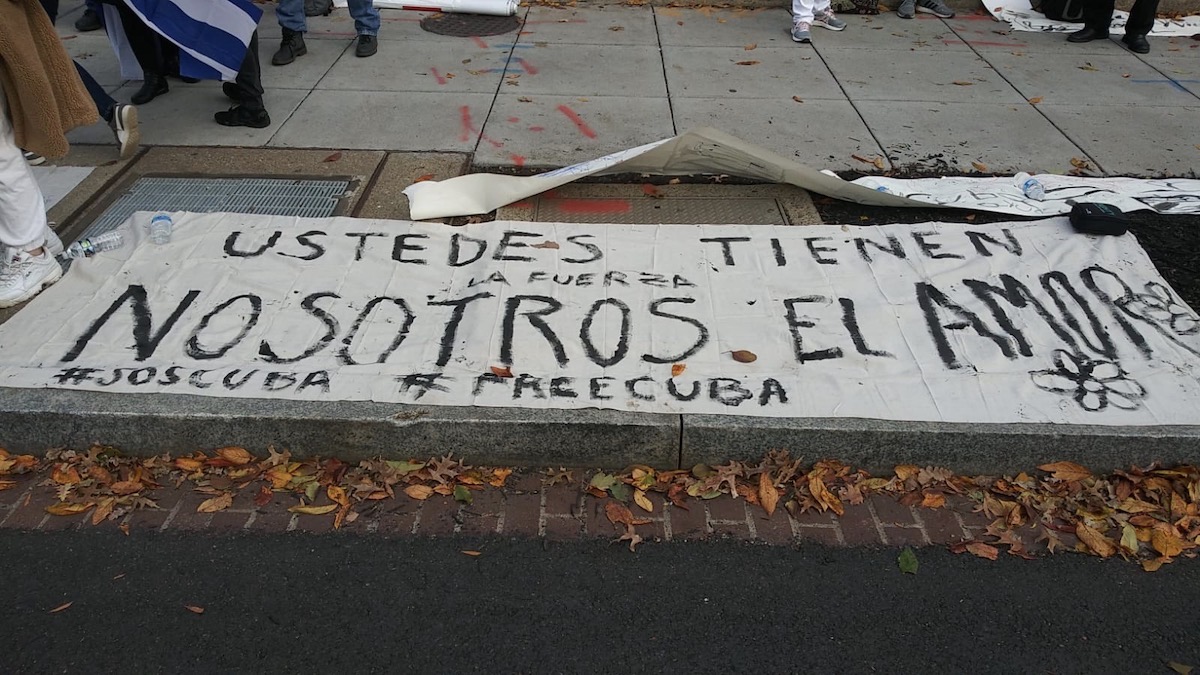On November 15 few people managed to demonstrate on Cuba's streets. Across the island, information from independent journalists, images and accounts published on social media all coincided: the tension was palpable in the country's empty streets, flooded with police, civilian agents and mobs poised for repression.
There were dozens of arrests and hundreds of "house arrests," all of them illegal. In front of the homes of numerous organizers and dissidents acts of repudiation were held of the kind that have debased Cuba's national life for decades. Hordes of vociferous zombies, clad in rags or flags, Che shirts, and wearing fake gold watches, ranted and raged in places like Havana, Santa Clara, Holguín and Camagüey.
They were still shouting when the regime proclaimed victory, the memory of thousands of Cubans marching peacefully and spontaneously through the streets on July 11 still all too vivid.
In this sense, little happened in the eyes of those who envisioned a sudden end to the dictatorship, and in those of the dictatorship itself, increasingly fearful that this possibility would materialize. However, for those who understand this outcome as the result of an irreversible process, November 15 was a triumph, a great step forward for the forces of change.
In the first place, this is because Castroism is not designed to tolerate any disenchantment. It requires universal demonstrations of unity and unanimity. The 15-N protests showed that in today's Cuba there is anything but that. Renowned musicians like Pablo Milanés, Chucho Valdés and Leo Brouwer, who for years had supported the system, spoke out clearly as a result of the latest events. They are just the most visible signs of what is an increasingly widespread sentiment among Cubans: the rejection of the violence and intolerance the regime is using to survive.
In addition, the call for protest galvanized Cubans all over the world. The "free nation," comprised of those residing off the island, demonstrated in 120 cities, calling for freedom. After the July 11th protests the November 15th movement transformed apathy and despair over the absence of changes into a civic movement that demanded these changes openly and firmly, with an optimistic, inclusive spirit.
In recent days and weeks activism has attracted hundreds of thousands of vocal supporters, and not only in the community of Cuban exiles, the emigrants, but also in that liquid nation that comes and goes, struggling to survive beyond the island's borders given the economic failure of the policies of the regime, which is busy struggling to transform its dysfunctional socialism into a form of corporatist capitalism placed in the hands of an elite.
The thousands of relatives of those arrested and sentenced for protesting on 11-J were joined by relatives and friends marching in the likes of Quito, Mexico City, Houston and Madrid. The number of demonstrations in the world revealed that the Cuba that wants change is a majority, and that the lack of a massive turnout was due entirely to the scare tactics deployed in the country's streets.
By resorting to them, to terror, the regime has been exposed before international institutions and democratic governments. In this new scenario, it is now unthinkable to speak of diplomatic detente, opportunities or economic investment.
On November 15 Cuba and the Díaz-Canel government, and those who run it from the shadows were also shown for what they are: the former, an oppressed and terrified people, but one determined to change; the latter, an archaic and decadent regime with no other strategy than more of the same conduct that got them here, whatever the cost.
